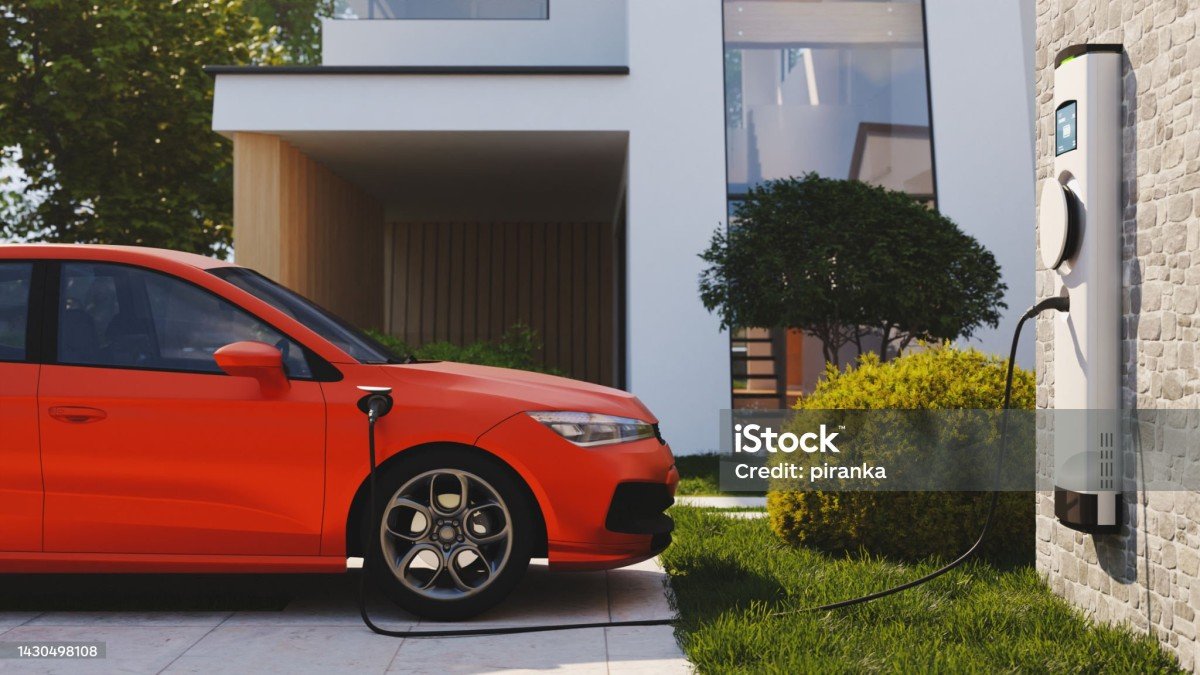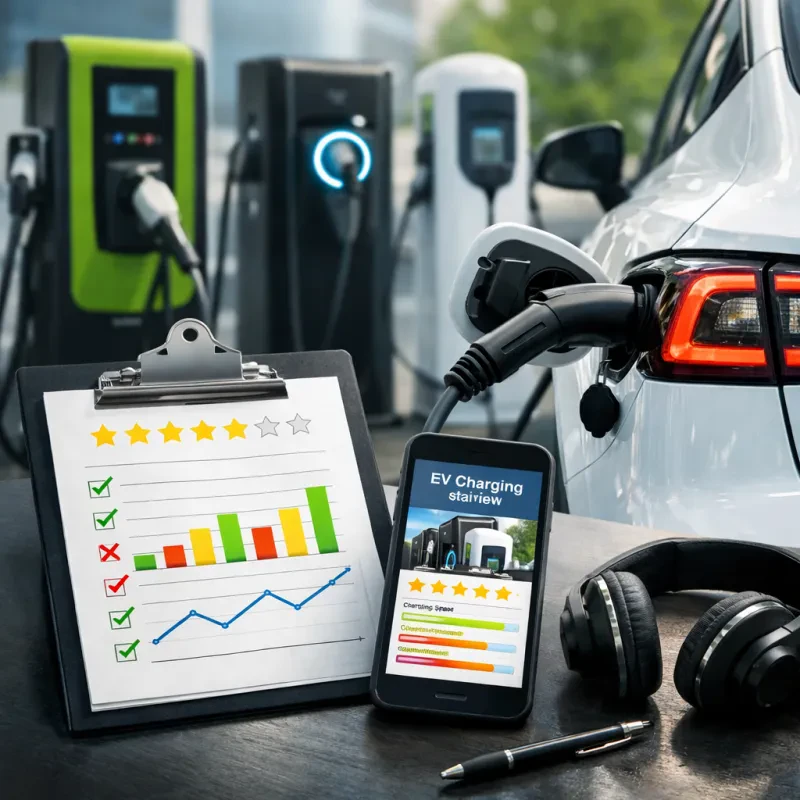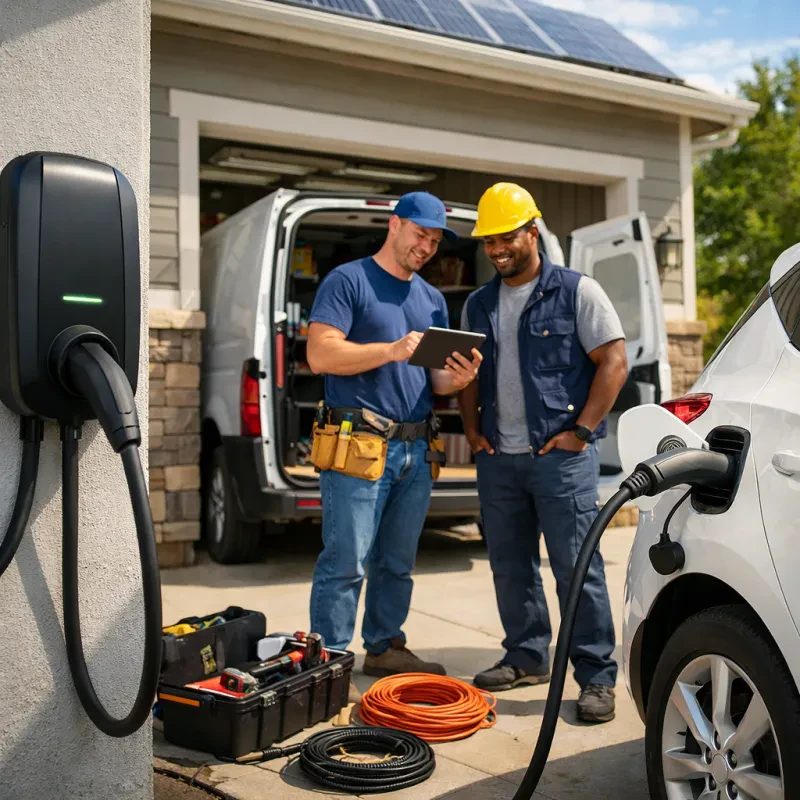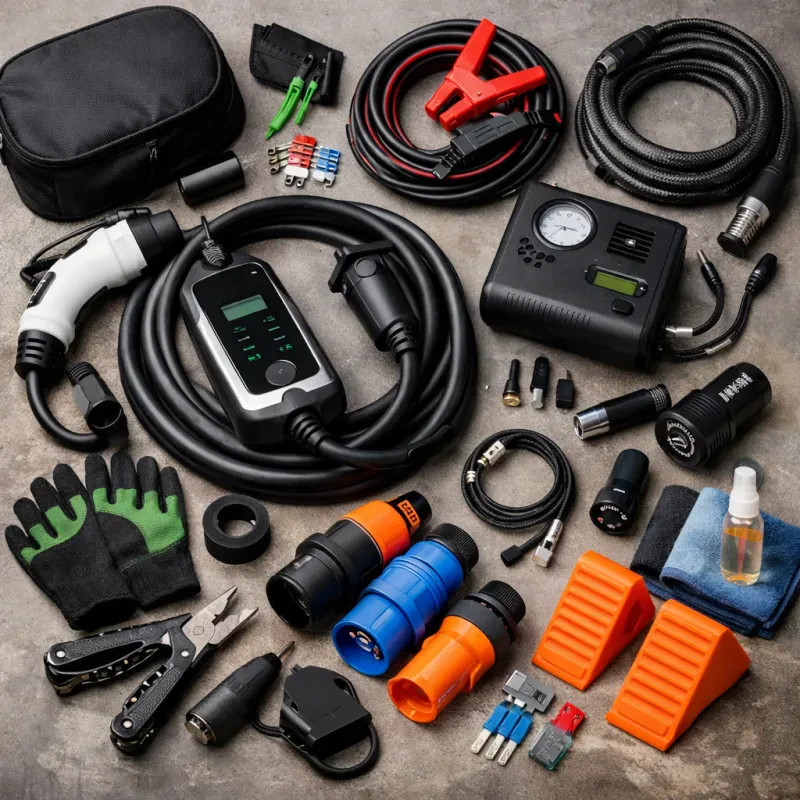With the rise of electric vehicles (EVs) in recent years, more and more homeowners are opting to install EV charger stations in their homes. There are several benefits to having an EV charger station in your home, making it a worthwhile investment for environmentally conscious individuals and those looking to save on fuel costs.
One major benefit of installing an EV charger station at home is the convenience it offers. With a charger station right in your garage or driveway, you can easily plug in your electric vehicle and have it charging overnight or whenever you're not using it. This eliminates the need to visit public charging stations, saving you time and providing peace of mind knowing that your car will always be ready to go when you are.
Another advantage of having an EV charger station at home is the cost savings it can provide. Charging your electric vehicle at home is typically much cheaper than using public charging stations, as you can take advantage of off-peak electricity rates and avoid any additional fees that may be associated with using public chargers. Over time, the savings on fuel costs can really add up, making the initial investment in an EV charger station well worth it.
In addition to the convenience and cost savings, installing an EV charger station at home also helps promote sustainability and reduce your carbon footprint. By driving an electric vehicle and charging it with renewable energy sources, you can significantly reduce your greenhouse gas emissions and contribute to a cleaner environment. With more and more homeowners making the switch to electric vehicles, installing an EV charger station is a great way to show your commitment to sustainability and inspire others to do the same.
How to Choose the Right EV Charger
One of the most important decisions you'll make when upgrading your home with an electric vehicle (EV) charger station is choosing the right charger for your needs. With so many options on the market, it can be overwhelming to figure out which one is best for you. Here are some tips to help you choose the right EV charger for your home.
The first thing to consider is the charging speed you need. Level 1 chargers are the slowest option, providing about 4-5 miles of range per hour of charging. Level 2 chargers are much faster, giving you around 25 miles of range per hour of charging. If you have a long commute or multiple EVs, a Level 2 charger is likely the best choice for you. If you need even faster charging, you can consider a Level 3 charger, also known as a DC fast charger. These chargers can provide up to 80% charge in as little as 30 minutes.
Another important factor to consider is the connector type. Most EVs in the US use a J1772 connector for Level 1 and Level 2 charging, while some European models use a Type 2 connector. If you have a Tesla, you'll need an adaptor to use a J1772 charger. If you're planning to get a future-proof charger, you might want to consider a charger with both connector types.
Lastly, you'll want to consider the charger's smart features. Many EV chargers come with WiFi connectivity, allowing you to monitor and control your charging sessions remotely. Some chargers even have load management features to help you avoid overloading your home's electrical system. Think about what features are important to you and choose a charger that meets your needs.
Installation Process for EV Charger Station
Ready to upgrade your home with an EV charger station? Follow these simple steps to install your very own charging station:
1. Determine the best location for your charger station. Consider factors such as proximity to your electric panel, convenient parking access for your vehicle, and protection from the elements. A level and stable surface is ideal for installation.
2. Hire a licensed electrician to assess your home's electrical capacity and install the necessary wiring for your charger station. This step is crucial to ensure that your charging station will operate safely and efficiently, without overloading your electrical system.
3. Once the wiring is in place, follow the manufacturer's instructions to mount the EV charger station on the wall or another suitable surface. Make sure to securely fasten the charger to prevent any accidents or damage.
4. Test your new charging station by plugging in your electric vehicle and ensuring that it is charging properly. Familiarize yourself with the charging settings and features of your station to maximize its usability and convenience.
Cost Comparison of EV Charger Options
When it comes to upgrading your home with an electric vehicle (EV) charger station, there are several options to consider. One of the main factors that homeowners often prioritize is cost. In this section, we will compare the cost of different EV charger options to help you make an informed decision.
The most basic and affordable option is a Level 1 charger, which typically comes standard with most electric vehicles. These chargers can be plugged into a standard 120-volt outlet and provide a slow charge rate of approximately 4 to 5 miles of range per hour. The cost of a Level 1 charger ranges from $200 to $600, making it a budget-friendly choice for those who have limited charging needs.
For faster charging speeds, homeowners can opt for a Level 2 charger. These chargers require a dedicated 240-volt outlet and can provide around 25 to 30 miles of range per hour. The cost of a Level 2 charger ranges from $500 to $2,500, depending on the brand and features. While this option is more expensive than a Level 1 charger, it is ideal for those who need to charge their EV quickly and efficiently.
Alternatively, homeowners can choose a Level 3 charger, also known as a DC fast charger. These chargers are capable of providing 60 to 80 miles of range in just 20 minutes, making them the fastest option available. However, Level 3 chargers are significantly more expensive, with prices starting at $10,000 and going up to $40,000 or more. This option is best suited for commercial properties or high-traffic areas where fast charging is essential.



